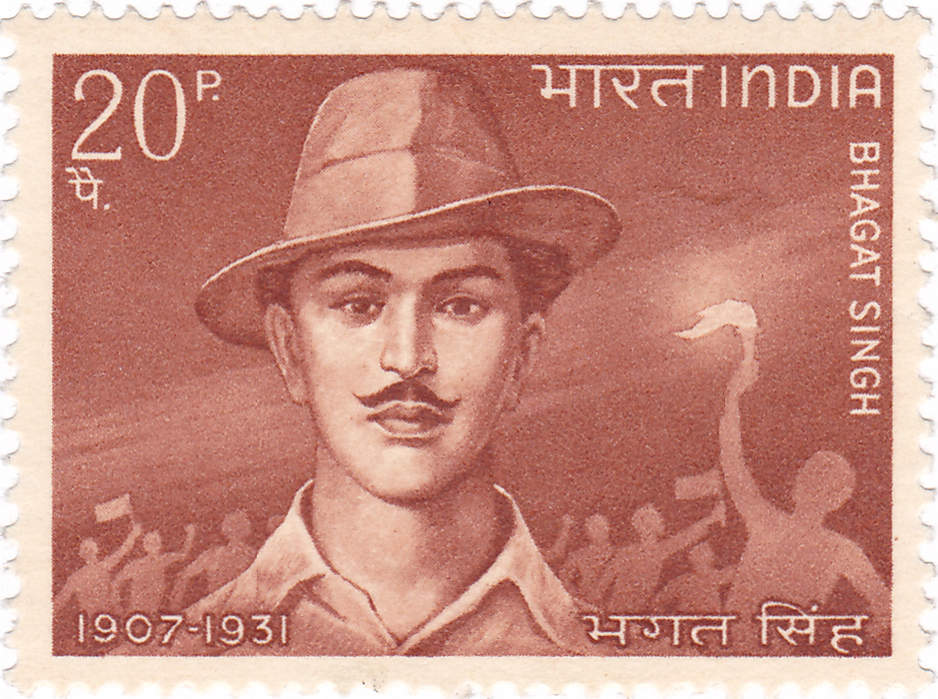 Bhagat Singh
Bhagat Singh was an Indian anti-colonial revolutionary who participated in the mistaken murder of a junior British police officer in December 1928 in what was to be retaliation for the death of an Indian nationalist. He later took part in a largely symbolic bombing of the Central Legislative Assembly in Delhi and a hunger strike in jail, which—on the back of sympathetic coverage in Indian-owned newspapers—turned him into a household name in the Punjab region, and after his execution at age 23 into a martyr and folk hero in Northern India. Borrowing ideas from Bolshevism and anarchism, the charismatic Bhagat Singh electrified a growing militancy in India in the 1930s and prompted urgent introspection within the Indian National Congress's nonviolent but eventually successful campaign for India's independence.

